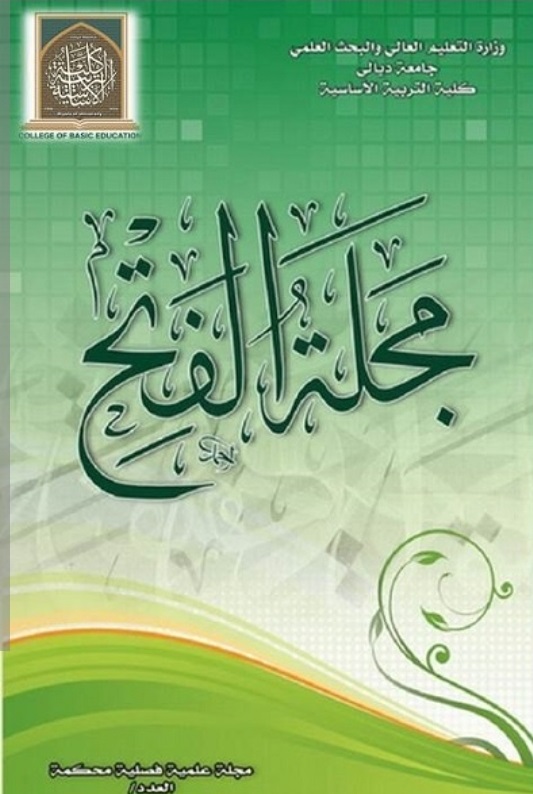العلاقة بين الكفاية الذاتية والقلق من اللغة الاجنبية والتحصيل لدى طلبة السنة التحضيرية
الملخص
ملخص
تهدف هذه الدراسة إلى استقصاء العلاقة بين الكفاية الذاتية والقلق من اللغة الأجنبية والتحصيل لدى عينة من طلبة السنة التحضيرية في جامعة الإمام عبدالرحمن بن فيصل، بلغ عددها 151 مستجيبا من الطلبة الذكور والإناث ، وشكلت ما نسبته 19% من مجتمع الدراسة في الجامعة. تم تطبيق مقاييس الكفاية الذاتية والقلق من اللغة اللإنجليزية كلغة أجنبية على عيمة الدراسة بعد التحقق من الخصائص السيكومترية لأدوات الدراسة. بينت النتائج أن هناك علاقة ارتباطية دالة إحصائيا عند مستوى الدلالة ((α = 0.01 بين قلق الطلبة من اللغة الانجليزية وتحصيلهم، ويمكن التنبؤ بتحصيل الطلبة من خلال قياس درجة قلقهم من اللغة الأجنبية، حيث فسر القلق في هذه الدراسة ما نسبته 9.4% من تحصيل الطلبة. وفي المقابل، بينت النتائج أنه لا يمكن التنبؤ بتحصيل الطلبة من خلال الكفاية الذاتية، حيث فسرت الكفاية الذاتية مانسبته 6.7% فقط من التحصيل، وكانت العلاقة بين الكفاية الذاتية والتحصيل غير دالة إحصائيا عند مستوى الدلالة α = 0.05.
المراجع
References
Akbari, M. &Sadeghi, M. (2013)."Foreign Language Learning Anxiety: The Case of Iranian Kurdish-Persian Bilinguals". International Research Journal of Applied and Basic Sciences, 4(9).
Al-Saraj, T. (2011).Exploring foreign language anxiety in Saudi Arabia: a study of female English as foreign language college students (Unpublished doctoral dissertation).Institute of Education, University of London.
Al-Saraj, T. (2014). Revisiting the foreign language classroom anxiety scale (FLCAS): The anxiety of female English language learners in Saudi Arabia. L2 Journal, 6, 50-76.
Bandura, A. (1995). Self-efficacy in changing societies. Cambridge: Cambridge University Press.
Bembenutty, H. (2006). Self-regulation of learning.
Academic Exchange Quarterly, 10(4), 1.
Coronado-Aliegro, J. (2006). The effect of self-assessment on the self-efficacy of students studying Spanish as a foreign language. Unpublished doctoral dissertation. University of Pittsburgh.
Durndell, A. & Haag, Z. (2002).Computer self-efficacy, computer anxiety, attitudes towards the Internet and reported experience with the Internet, by gender, in an East European sample. Computers in Human Behavior, 18: 521–535.
https://www.journals.elsevier.com/computers-in-human-behavior
Gould, J. (2012). Learning theory and classroom practice in the lifelong learning sector. 2nd Edition. California: Sage Publications Inc.
Kaim, D. (2013). An exploratory study on self-efficacy beliefs of EFL students` listening comprehension. Master theses submitted to Graduate School of Social Sciences, Girne American School.
Koch, A. S., & Terrell, T. D. (1991).Affective reactions of foreign language students to natural approach activities and teaching techniques. In E. K. Horwitz & D. J. Young (Eds.). (1992). Language anxiety: From theory and research to classroom implications (pp. 109–126). Englewood Cliffs, NJ: Prentice Hall.
MacIntyre, P. D. & Gardner, R. C. (1994). The effects of induced anxiety on cognitive processing in computerized vocabulary learning. Studies in Second Language Acquisition, 16, 1-17
Horwitz, E. K. (2001). Language anxiety and achievement. Annual Review of Applied Linguistics, 21, 112-126.
Horwitz, E. K. (2010). Foreign and second language anxiety. Language Teaching, 43, 154-167.
Horwitz, E. K., Horwitz, M. B., & Cope, J. (1986). Foreign language classroom anxiety. The Modern Language Journal, 70, 125-132.
Saif, A. (2014), The Relationship between self-efficacy, motivation, and academic achievement of undergraduate students in Yemen. Scientific Journal for the College of Education, Asyout University, Vol. 30, Issue (1).
Tschannen-Moran and Hoy (2001), "Teacher efficacy: capturing an elusive construct". Teacher and Teacher Education, 17, 783-805.
التنزيلات
منشور
كيفية الاقتباس
إصدار
القسم
الرخصة
الحقوق الفكرية (c) 2017 مجلة الفتح

هذا العمل مرخص بموجب Creative Commons Attribution 4.0 International License.
حقوق النشر والترخيص
تطبق مجلة الفتح للبحوث التربوية والنفسية ترخيص CC BY (ترخيص Creative Commons Attribution 4.0 International). يسمح هذا الترخيص للمؤلفين بالاحتفاظ بملكية حقوق الطبع والنشر لأوراقهم. لكن هذا الترخيص يسمح لأي مستخدم بتنزيل المقالة وطباعتها واستخراجها وإعادة استخدامها وأرشفتها وتوزيعها ، طالما تم منح الائتمان المناسب للمؤلفين ومصدر العمل. يضمن الترخيص أن المقالة ستكون متاحة على نطاق واسع بقدر الإمكان وأن المقالة يمكن تضمينها في أي أرشيف علمي.
لمزيد من المعلومات، يرجى متابعة الرابط: https://creativecommons.org/licenses/by/4.0/.



